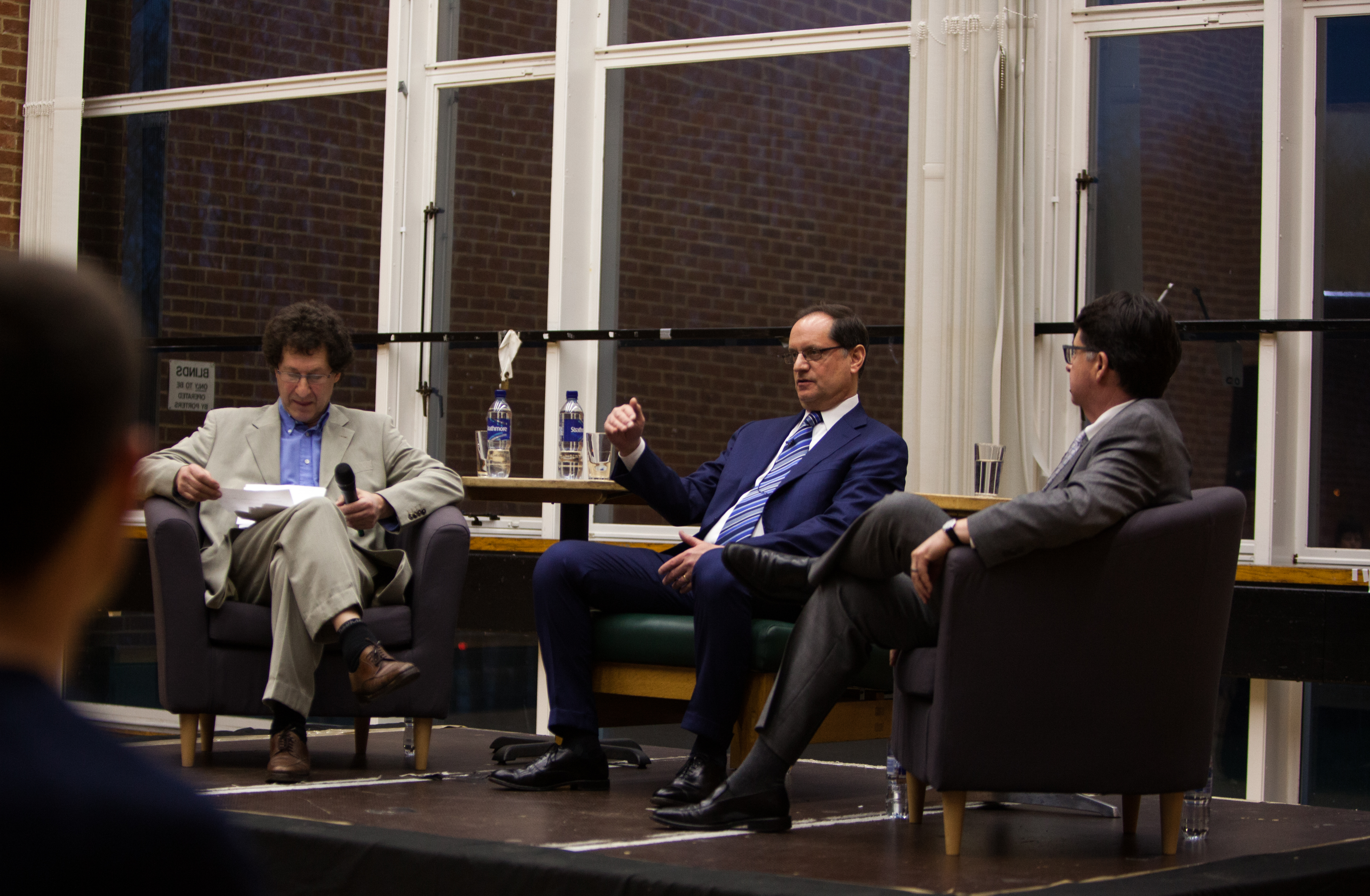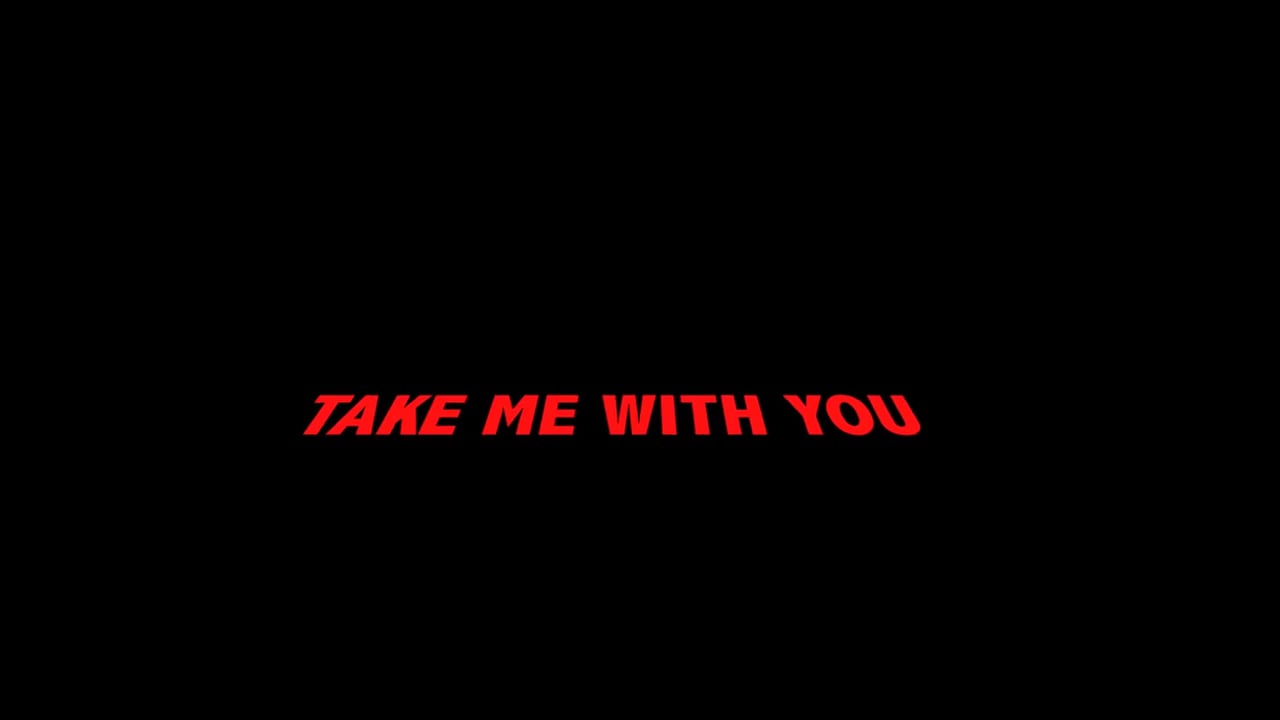Lawyers Dean Strang and Jerry Buting, from hit Netflix series Making A Murderer, arrived on Sussex campus to talk about one of the most extraordinary legal cases in the American judicial system. Hosted by the Students Union in Mandela Hall, the event attracted two-hundred-and-twenty students on Monday.
The 10-episode series ignited a global outrage, due to a long and winded process revolving around the Steven Avery case in 2005. Avery was convicted of murder and sexual assault of Teresa Halbach, serving a 32-year sentence. The lawyers and the producers raised public awareness by creating a TV series that circles around him and his nephew Brenden Dassey’s (sentenced for first degree murder and mutilation of Halbach) wrongful conviction. Avery had spent 18 years in jail for another wrongful conviction of assault and rape in 1985, to which he was awarded $400,000 in compensation. The going defense is that Manitowoc County Police Department framed Avery and Dassey after being humiliated in the public wrong conviction.
Attorney Strang off the bat stated the show doesn’t show half as much as the necessary evidence, due to the time constrictions of production. This was partially due to the production’s desire for the prosecution to have ample space to state their case, in a documentary which so clearly swings towards Avery and Dassey’s innocence. Time constriction was also due to the documentary following the Avery family and the impact the case had on their lives, therefore not strictly dependent on the legal framework.
In answering “Does the media change the way cases work out?” Buting started off saying that due to free speech in the U.S, media has enough motivation to capitalize on cases such as these. What is unusual in this particular case, is that the prosecution provided the media with a false narrative, disproved by the physical evidence, and — to attract more attention — became very sensational in their language. When a press conference becomes the best closing statement, this opens a can of worms that cannot be closed easily, if at all.
A similar issue occurred back in 1994 with the notorious People v. O.J. Simpson, where Simpson was let off from a murder conviction (of his ex-wife and boyfriend) in part due to the media taking over the case and contaminating facts.
Now that the media is becoming more and more ingrained in massive court trials, it clearly needs to start being taken into consideration in future cases, stated Buting — an interesting comment considering the defense teams’ attempts to free Avery by employing Netflix. Buting further differentiated between Hollywood & entertainment and the media in a journalistic sense. Yet, I can’t help wondering if there is much of a difference. Entertainment and media have always worked hand in hand, saying one is an acceptable form of exploitation of the judicial system (even if for a good cause) rather than the other, is somewhat hypocritical.
On answering if the filming affected the case, Strang stated “not much, if not at all due to cameras being in courtrooms anyway, rendering them all but invisible.”
In regards to why was Brenden’s testament not made inadmissible — a pivotal element in the case considering Brenden’s age and cognitive difficulties — Strang explained that, as of this year, Wisconsin had ruled it invalid. An uplifting fact before you remember he’s already spent 9 years in prison. Interestingly, Strang brought up the difference between Federal Judges and State Judges. While Federal judges are appointed (a life tenure), State Judges are elected, this allows for State Judges to make certain decisions so that they can keep a majority for re-election. Not to mention State courts are poorly funded, so judges have little personnel, while Federal courts are highly funded. The Federal Judge in the case wrote a 91-page paper examining the situation, something that would have never been produced in a State court.
One of the most disturbing parts of the series was Brenden Dassey’s interview, where Brenden’s confession was coerced via a “false friend”. Brenden, cognitively disabled and sixteen, gets taken out of school and is interviewed without a lawyer present, pressured to confession by the pretension of evidence they don’t have. The two lawyers gave the audience a funny demonstration of how it’s done (Strang accused Buting of having robbed a Tesco express); primarily via good cop-bad cop technique, they showed how easy it is to get someone to confess. The lawyers also pointed out that the cops often threaten with the death penalty (32 U.S. States still have it, although it may not be always practiced), scaring a false confession out of a defendant.
Strang continued to express how unfortunate Brendan’s lawyer, Len Kachinsky, was to talk to the media the way he did, which basically hindered his case and caused Brenden’s conviction. After watching the series and hearing Strang and Buting, the idea that Avery was wrongfully convicted of Halbach’s assult and murder isn’t too far fetched. After all Avery was suing for 36 million dollars for wrong conviction, surely not Wisconsin PD’s finest moment.
Strang and Buting looked like a good lawyer-bad lawyer team, Strang being the funny one that allows the law to become a more tangible and understandable subject, and Buting supplying information and concrete evidence, if often times difficult to follow in his intricate rhetoric.
The final part of the talk largely revolved around the complications within the American justice system. Strang and Buting made strong statements on how crime affects the poor, how the system is a vicious circle where if you’re a minority or a low-income person you automatically get clocked in the worst neighborhoods, with high crime rates and large police presence, allowing for youth to be in contact with the police force at a very young age. “The system perpetuated that poverty […] our prison sentences are some of the longest in the world,” Strang stated, not to mention rates of incarceration are some of the highest, 22% of the world’s prisoners are in the U.S. Once they get out, they live under conditions and technical rules that hardly allow them not to break the law: “once convicted, you’re likely to never escape poverty”.
If you’re an immigrant, if you’re poor, or a minority, you’re more likely to be in contact with criminality. You automatically become “the other” for the majority of the population, you’re marginalized into crime zones and difficult neighborhoods. Therefore growing up you’re more likely to encounter problems with the police, getting in trouble for loitering, j-walking, graffiti. Young people, doing just what young people do, get in contact with the justice system and are then branded as being non-compliant, leading to misdemeanors and criminal charges. In wealthier neighborhoods policemen are less around and white kids hanging around on a curb aren’t seen as menacing, therefore the problem doesn’t exist.
One way to improve this situation is to stop cuts in legal aid and allow for people to have a real defense, since underfunding of the justice system results in problems for minorities. In addition, you have to start at primary school level, with drug and alcohol help, housing, and access to employment. Children need to be helped from the core, they need to be reached and kept in school: “Think of how many crimes there won’t be through the course of this young men’s lives. Courtrooms matter but it’s just too late there” Strang concluded.




